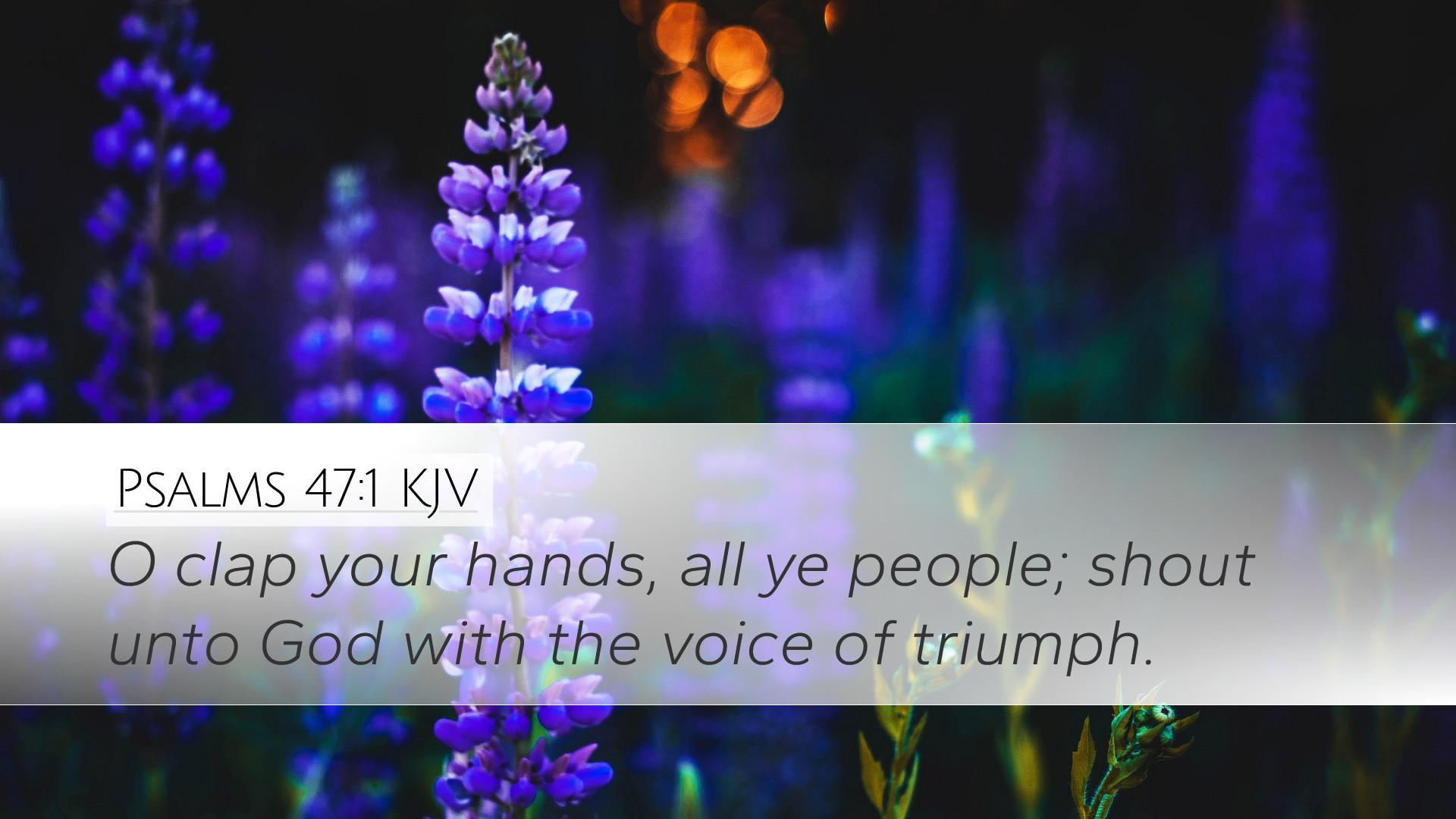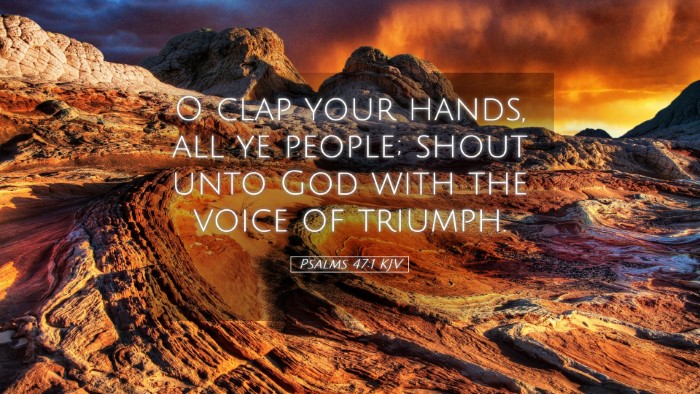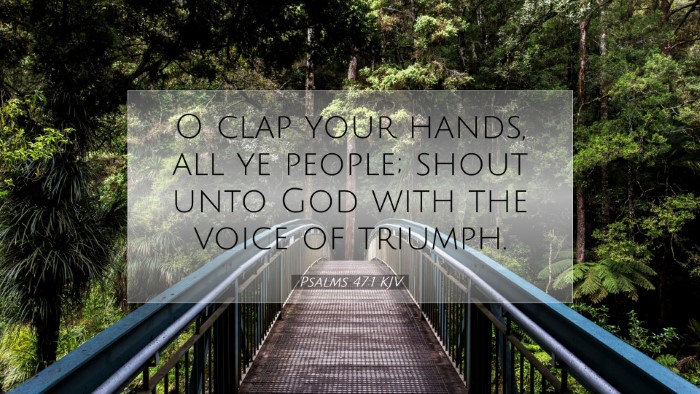Commentary on Psalms 47:1
Bible Verse: "O clap your hands, all ye people; shout unto God with the voice of triumph."
Introduction
The 47th Psalm is a majestic hymn that celebrates God's kingship and calls for universal praise. It invites all people to join in worship, recognizing God's sovereignty and the joy that comes from being in His presence. This commentary combines insights from Matthew Henry, Albert Barnes, and Adam Clarke to provide a comprehensive understanding of Psalm 47:1.
Context and Theme
The context of Psalm 47 invites readers to consider God as both a ruler and a savior. The call to clap and shout signifies joyful celebration and is indicative of the response to God's mighty acts in history. The psalmist emphasizes the inclusiveness of worship, directed not only to Israel but to "all ye people.” This broad call highlights the universal recognition of God's authority.
- Universal Praise: Henry notes that this psalm anticipates the time when all nations will worship the one true God, illustrating the expansive reach of divine authority.
- Joyful Worship: Barnes emphasizes the importance of ecstatic expressions of joy in worship, reflecting the response to God’s works among His people.
- The Voice of Triumph: Clarke elaborates that the "voice of triumph" denotes a proclamation of God’s victories and a declaration of faith in divine power.
Meaning of the Text
In the opening line, "O clap your hands," the psalmist calls for a physical expression of joy. Clapping is not merely an act of applause but an ancient sign of communal celebration. It signifies agreement, unity, and collective joy among the worshipers.
- Significance of Clapping: Matthew Henry points out that clapping hands in worship is emblematic of proclaiming God’s greatness and serving as a communal affirmation of faith.
- Shouting Unto God: The act of shouting, as highlighted by Barnes, transcends mere verbal expression and becomes a declaration of triumph, evidence of God’s power and victory over adversaries.
This verse serves as a precursor to the understanding of worship as an active participation in the recognition of God’s rule over creation.
Applications for Worship
The command to "clap your hands" and "shout" can be contextualized in contemporary worship settings. It invites believers to engage both emotionally and spiritually, embodying their faith through various expressions of worship.
- Active Engagement: Clarke suggests that worship should not be passive; it should engage both body and spirit. Congregations are encouraged to participate actively in their praises.
- Celebration of God’s Work: Reflecting on God’s past deeds can inspire believers to respond in jubilation, reinforcing their trust in His future provisions.
Theological Insights
This verse encapsulates core theological principles regarding God’s sovereignty and His relationship with humanity.
- God’s Sovereignty: The insignia of God as King is central, reminding believers of His ultimate authority over all nations. This is emphasized by Henry, who states that God’s kingship is meant to evoke awe and reverence.
- The Community of Believers: The call "all ye people" reflects the communal aspect of faith. It stresses that praise is not confined to a select group; rather, it should resonate across all nations.
Conclusion
Psalms 47:1 serves as a powerful reminder of the call to worship, emphasizing both joyous expression and communal engagement. It encourages believers to acknowledge God’s triumph and reign over the earth—a reminder for pastors, students, and theologians to harness this understanding in their teachings and practices.
In summary, by clapping and shouting with joy, worshipers not only affirm their faith but also invite others to join in the declaration of God’s greatness, furthering His mission on Earth.


